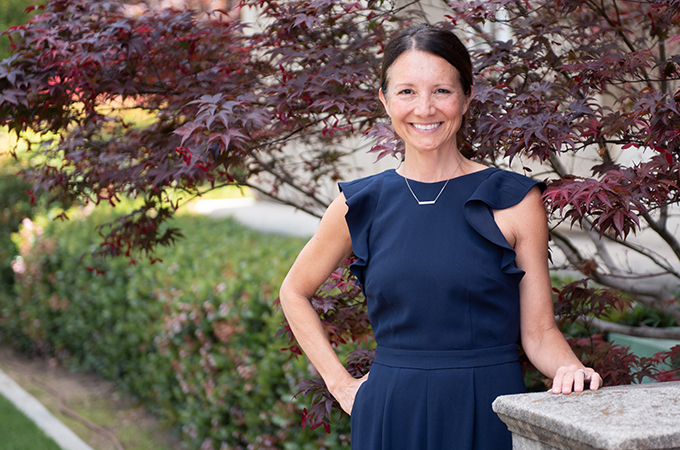Working as a physical therapist for over a decade gave Health, Medicine, and Society (HMS) Professor Kendra Nelson valuable first-hand experience. At the University of Redlands, she uses her knowledge to offer students a unique clinical lens that transforms ordinary biological sciences into comprehensive medical reasoning and understanding.
“I love being able to help students,” she said. “In the classroom setting, you're helping to shape how future clinicians interact with their patients.”
Nelson’s background as a clinician makes her unique among HMS faculty and students appreciate her perspective. During her time at Redlands, she has advised students who are interested in entering the medical field but are not taking the traditional route by studying biology. She is also a valuable resource for HMS students as they work on their narratives, which serve as the foundation for their senior capstone projects.
Even as a physical therapist, Nelson has always had a desire to teach. Education was a constant theme in her clinical experience as a physical therapist for student-athletes, where many of her patients requested detailed anatomical information about their injuries. These interactions inspired Nelson as a clinician, ultimately launching her career as a facilitator and educator. In recent years, she has taught pre-health courses and continued to work with patients in the Inland Empire.
Amidst the COVID-19 pandemic, Nelson joined the University of Redlands community, teaching courses in the biology, HMS, and physical education departments and for the School of Continuing Studies. Within the HMS department, Nelson has had the opportunity to dive into interdisciplinary curricula and encourage students to think beyond the hypothetical situations that are taught in the classroom.
Students have met her approach with enthusiasm, including Sage Peterson Henry ’22, who said, “Professor Nelson has provided so many creative ways for us to learn about ourselves. Her courses have made me feel very prepared for graduate school and job interviews.”
Currently, Nelson teaches introductory and capstone courses in the HMS department. As an industry professional, her vast expertise provides valuable insight into the realities of the medical field. She helps HMS students expand their skills by addressing issues about patient advocacy and health inequalities—topics she first encountered during her own clinical experience.
“Studying HMS is necessary because healthcare does not work unless you understand health discrepancies and the responsibility to advocate—either for individual patients or entire communities,” Nelson said.
By encouraging students to recognize the interdisciplinary nature of the medical field, Nelson helps students foster the necessary academic connections they need to become future medical professionals.
“There's a strong desire to learn and to grow as a person on this campus,” she said. “There’s a sense of community and integration among students and faculty that is unique. It’s amazing to walk into each class and know that the students are engaged, ready to learn, and ready to think beyond the course content.”
Learn more about health, medicine, and society or other programs of study at the U of R.






